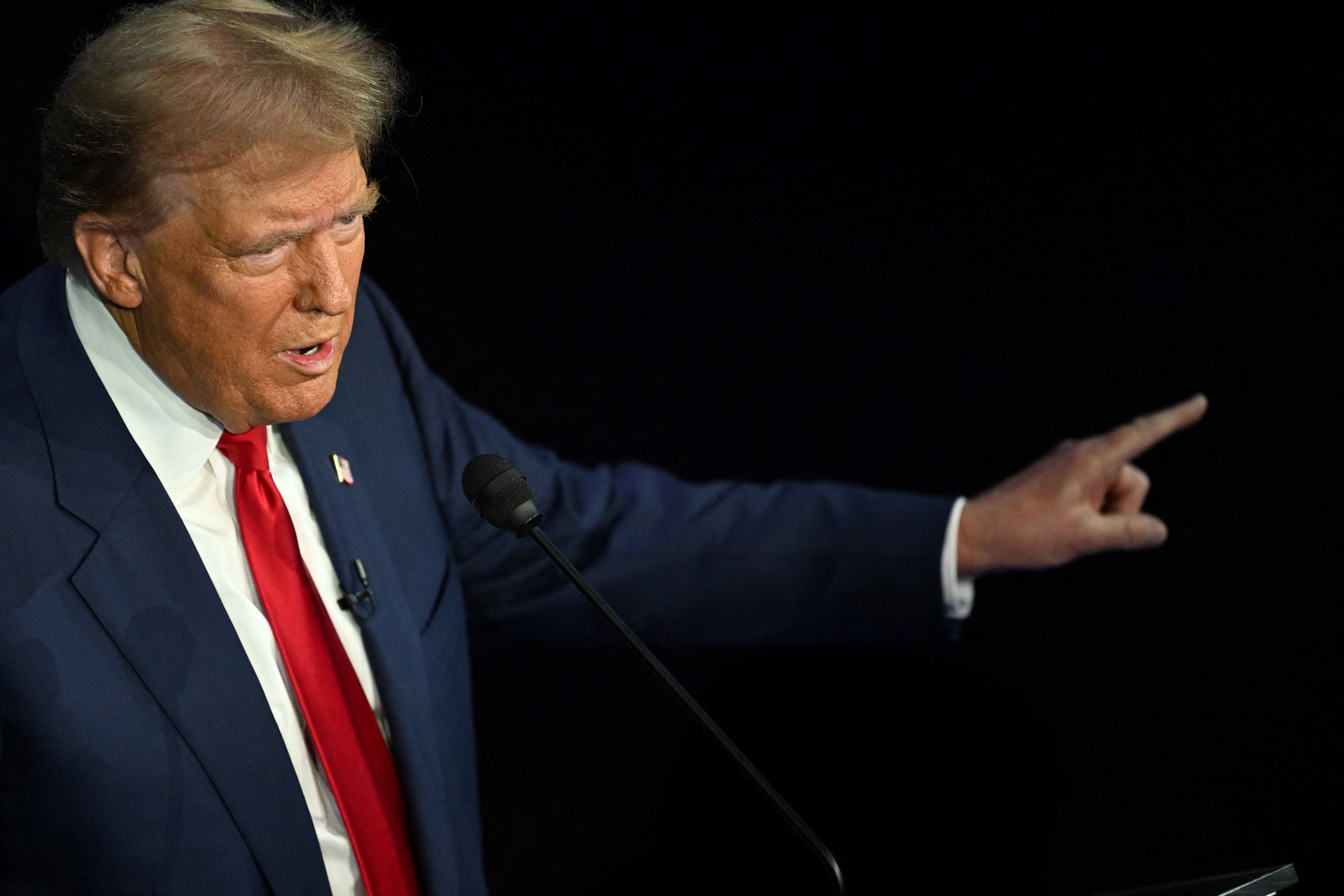Trump's Spontaneity Was No Match for Harris' Prepared Responses
The vice president allowed Trump to handle the implementation of her strategy.

In many respects, these strategies are standard advice for any candidate during an election: disregard the specific question posed and instead employ it as an opportunity to reiterate the key messages that were rehearsed.
However, Harris’ approach in her inaugural debate as a presidential nominee was also tailored for her specific moment and opponent. She utilized her extensive debate preparation in a Pittsburgh hotel to assemble a rich collection of taunts and sharp retorts aimed at former President Donald Trump. The preparation allowed her to memorize numerous lines, although at times her delivery came off as somewhat scripted, almost like she was mentally flipping through a set of neatly arranged 3-by-5 index cards.
Harris’ tactics proved effective because Trump entered the National Constitution Center lacking a coherent strategy—at least one that could endure beyond the first 15 minutes of the debate.
On numerous occasions, Trump acted contrary to what traditional campaign experts would suggest.
He engaged in detailed replies to Harris’ provocations, allowing her to steer the evening's agenda. His raised voice and scowls came across strongly at times, particularly as he attacked the current administration's record on immigration and inflation—genuine vulnerabilities for them. Nevertheless, he sometimes meandered in his arguments, reminiscent of President Joe Biden’s tendencies. Instead of presenting a clear and consistent argument, he splashed broad strokes across the debate canvas, letting his points fluctuate.
While Harris was comprehensively coached, Trump was improvisational to an extent that some might describe as chaotic.
To state it plainly: by traditional debate standards, she triumphed by compelling him to do much of her work.
However, it's wise to exercise caution: Trump excites his supporters partly because he dismantles the expectations set by the media and campaign insiders regarding presidential behavior and effective campaign strategies. By conventional assessments, Hillary Rodham Clinton secured victories in her debates with Trump in 2016.
Nonetheless, Harris undoubtedly achieved her goals for the evening—methodically making her case against Trump and offering four distinct invitations to Americans to "turn the page" on him and the politics that have dominated for nearly a decade. According to The New York Times, Trump spoke for 43 minutes while she only had 38—but it’s difficult to believe she resented him the additional time; she might have benefited from allowing him even more.
Should anyone ever create a Political Consultants Hall of Fame, this evening might warrant its own display.
Traditionally, debates are perceived as opportunities to rise above the intricacies of polling, commentary, and strategic maneuvering to present candidates in ways that resonate with everyday voters watching from home.
This debate, in contrast, underscored the extent to which the inner workings of politics—the constant banter and speculation from cable news and social media—now permeate the most visible moments of a public campaign.
Harris criticized Trump’s rallies, calling out his nonsensical remarks about windmills causing cancer and fictional character Hannibal Lecter, asserting that attendees often leave early out of “exhaustion and boredom.” Trump, unable to resist, launched into an extended defense, claiming that many of the people attending her rallies are merely paid to be there.
She attacked him regarding the number of former Trump officials and other Republicans who believe he is unfit for a second term. In response to his comments about crimes committed by undocumented immigrants, she remarked, "Well, I think this is so rich," referencing his own felony convictions in New York, his loss in a civil suit for sexual assault, and the ongoing investigations related to his promotion of election denialism and attempts to overturn Biden’s 2020 victory.
Harris taunted Trump about receiving “$400 million on a silver platter” from his father and subsequently declaring bankruptcy six times. Each time, Trump took the bait, defending himself in a manner that shifted focus back to his controversies instead of the Biden-Harris record.
Ultimately, we gleaned little new about the fundamental characters of either candidate. It was well-known that Trump is sensitive to criticism and prone to vanity. Those familiar with Harris’ rise in national politics recognize her rhetorical style is influenced by her early career as a prosecutor and her commitment to preparation. A much wider audience now witnessed this for themselves.
While at times Harris appeared to deliver answers reminiscent of something generated by an AI, there were moments of genuine passion. The most impactful was her sincere indignation—evident in her vocal inflection—when discussing the aftermath of the Supreme Court’s 2022 decision to overturn Roe v. Wade: “A survivor of a crime, a violation to their body, does not have the right to make a decision about what happens to their body next. That is immoral.”
Both candidates made contradictory statements during the debate. Trump described Harris as “a Marxist. Everybody knows she is a Marxist.” Yet, the notion of her as a dangerous leftist conflicts with his assertion that she is a lightweight lacking a plan for various issues.
Similarly, Harris repeatedly labeled Trump as “weak.” If Trump were truly weak, there would be little reason to fear Harris’ argument that he could become a dictator in a second term, returning to the White House “with no guardrails.”
As the debate concluded, one lingering question remained: Will there be another such debate before November 5? Trump could undoubtedly benefit from another opportunity to engage. Harris may now feel less urgency to participate—but she might also have gained the confidence to accept another challenge. From the perspective of voters, it was an entertaining event, but one that also called for a sequel that is less entrenched in the preoccupations of campaign strategists and television producers.
Debra A Smith contributed to this report for TROIB News












